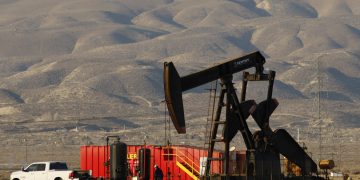Oil and Gas Companies Pull Out of UK North Sea Sector Due to Tax Pressure
Oil and gas companies operating in Britain’s North Sea offshore sector are consolidating and moving overseas as Britain’s windfall tax cuts into profits and the opposition Labor Party threatens to increase taxes if it wins the next general election. This was reported by Reuters.
A change in strategy could accelerate the decline in domestic output, risking greater import dependence, greater vulnerability to rising consumer prices, and greater job losses.
Oil majors such as Shell, Chevron and ExxonMobil have long abandoned the aging basin in search of more profitable oil fields, transferring assets to smaller producers such as Harbor Energy, Ithaca Energy and Serica Energy. These independent companies are now looking for new markets and merging to reduce costs and increase revenues. In April 2024, Ithaca Energy executive chairman G. Myerson noted that the UK government had made the North Sea a very harsh business environment.
In 2022, the UK government introduced a 25% excess profit tax on oil and gas companies amid the country’s energy crisis. Then, a surge in energy prices as a result of the launch of the Russian Federation’s SMO in Ukraine led to higher profits as consumers faced higher prices following similar measures in other European countries.
Chancellor of the Exchequer D. Hunt subsequently extended the levy until 2029 and increased it to 35%, bringing the total tax burden to 75%, one of the highest in the world. However, the levy exempts most of the profits that are reinvested in oil and gas production, under what is known as an investment surcharge.
In 2023, the tax deprived manufacturers of most of their profits, and many of them, incl. Harbor Energy, reduced investment and cut hundreds of jobs.
Serica has acquired smaller rival Tailwind Energy and is eyeing neighboring North Sea countries. As Serica Energy chairman D. Latin noted when talking about the opportunity in Norway, the company is now more interested in doing something that diversifies its activities outside the UK, because that is probably the biggest risk.
Ithaca, which has interests in two of the largest remaining untapped oil fields in the North Sea, has agreed to merge its operations with the UK assets of Italy’s Eni. The company plans to expand its activities abroad, in Norway, Denmark and other countries.
Meanwhile, Harbor Energy agreed in December 2023 to buy oil and gas assets from Wintershall Dea for $11.2 billion, which will sharply reduce its dependence on the UK.
Also on May 16, 2024, it became known that the American Chevron Corp. will sell its remaining oil and gas assets in the British North Sea, where it has operated for more than 55 years.
It was noted that the planned asset sales come as Chevron prepares to acquire rival Hess for $53 billion, which would include the sale of assets worldwide for between $10 billion and $15 billion. At the same time, in February 2024, Bloomberg reported that this deal could fall through because Rival ExxonMobil may exercise a pre-emptive right to buy out Hess’s stake in a giant oil field in Guyana.
Declining profits and prices
Oil and gas prices, and in turn energy company profits, have declined from the very high levels seen in 2022.
The North Sea oil industry has complained it needs government support to maximize production from depleted reserves, rather than policies it says are holding back investment.
Climate activists have called on the UK to halt all investment in new oil and gas production to meet its target of cutting greenhouse gas emissions to zero by 2050.
And ahead of this year’s UK election, the opposition Labor Party, which is leading in the polls, has pledged to increase the windfall tax by 3% to help fund its energy transition strategy. According to consultancy Wood Mackenzie, Labor is also seeking to close loopholes relating to investment benefits.
Production in the North Sea
North Sea production has declined in recent years to about 1.2 million boe/d from a peak of more than 4.5 million boe/d in 1999.
Analysts at brokerage Stifel estimate that over the remaining life of the North Sea basin, the higher tax rate and removal of the investment surcharge will reduce investment by £30 billion (about $38 billion) more than current estimates, leading to a faster decline production.
Under this scenario, Stifel forecasts that UK oil and gas production would halve by 2030 and would have to pay around £2.5 billion (about $3.2 billion) a year to import 80% your gas.







